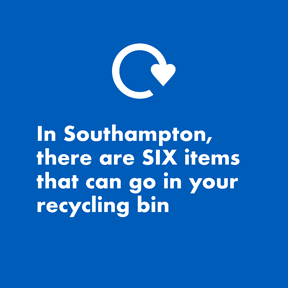Children and Families First (previously Early Help)
Important
Call 999 if it is an emergency and the child is in immediate danger
What is Children and Families First?
Problems can occur at any time in children's lives and our services need to be responsive to emerging needs at all ages. Children and Families First is not just aimed at preventing abuse or neglect but at ensuring the best start and improving the life chances of all children and young people, by working with their families. We have Family Hubs including three integrated Children and Families First Teams based across three localities – East, Central and West - who can provide advice and support for the whole family on issues such as:
- Parenting and behaviour management
- Emotional wellbeing
- Substance misuse
- Domestic abuse
- Financial advice and support, housing and progression to work
- Staying safe - outdoors and online
In Southampton, the early help system is made up of service users, community resources, universal service providers and targeted services working together to enable families to manage their own dilemmas and solve their own problems, making whatever changes are necessary to secure the well-being of their children, enabling appropriate risk management in the community and a proportionate response to risk and need.
Aim of Children and Families First
There are a number of common aims to Children and Families First, including to:
- Promote early intervention to assist children, young people and families who have vulnerable or complex needs and are therefore vulnerable to poor outcomes
- Share information and complete holistic assessments
- Plan and deliver SMART, planned interventions in response to need at the earliest opportunity
- Provide services to improve outcomes for children, young people and families
- Review and measure outcomes for children, young people and families
- Establish a common language to describe children's development and circumstances
- Work in partnership with children, young people and families in the assessment process
- Children and families having to repeat their story and duplication in the assessment processes
- Have a confident workforce, trained and supported to deliver high quality services to children, young people and families in Southampton
- Standardise, streamline and ensure a high quality of record keeping
- Use technology to assist practitioners to work effectively and deliver timely assessment and plans
Early Help Assessment
The Early Help Assessment is a tool used by all partners to assess the Early Help needs of a family and individual family members. It is a multi-agency gathering of information in order that any additional needs within a family can be understood and the process of providing or accessing support can begin. This will mean that the family and everyone involved can make a plan to provide that support. Part of that process may include a Team Around The Family (TAF) meeting taking place, or a Family Group Conference with the family to discuss the help they need and who will provide it.
If at any point in the process, a child or young person is considered to be at risk of significant and immediate harm, a direct referral to the Children’s Resource Service (Previously known as MASH) or a call to the Police may be necessary.
For all Early Help consent must be obtained.
Step Down to Early Help
The step-down approach describes the way in which a family can move out from statutory social care services to receiving continued or targeted support through our early help arrangements.
The child's journey through universal, targeted and specialist services is one that all agency partners wish to ensure is as smooth and time limited as possible. The step down process is intended to maintain children at universal and targeted level as much as possible by ensuring early intervention is provided in a timely manner, and any step up to statutory social care is only agreed when children's needs cannot be met though the provision of early help.
Step Down to Early Help process
Social Worker to obtain a signed copy of 'Information Sharing Consent Form'. Social Worker to retain signed copy as this will need to be uploaded to Care Director.
A discussion about what Children and Families First may be able to offer the family should be discussed with the family before the Child in Need meeting (CIN) or the Team around the Family meeting (TAF) meeting is arranged.
The social worker needs to discuss with the family whom they would ideally most like to be the lead practitioner and discuss this with the relevant practitioner prior to any meeting.
There is an expectation that professionals engage with undertaking the lead practitioner role and need to be asked. Clear reasons should be given by any practitioner chosen by a family as to why they are not able to be the lead and challenged if they say they are not able to take this role on.
If the case has come through the Social Work with Families team - and a single assessment has been completed - a Team around the family (TAF) meeting should be arranged to discuss the ongoing Early Help plan and intervention.
If the case has been held at Child in Need level and a child in need meeting is arranged where the plan is clear that it is stepping down to Children and Families First - there is no need to organise another multi-agency meeting (Team around the family-TAF), the lead practitioner should have already been identified and the plan discussed with the family.
National guidance
For more detail view the national Supporting Families programme guidance 2022 to 2025.



